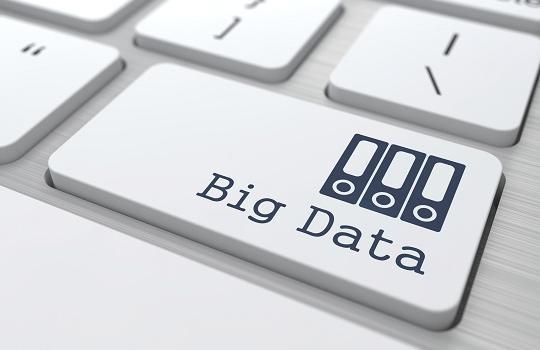 If you are interested in Big Data, take a look at our Big Data hub, featuring a televised panel debate with six experts and related whitepapers and resources to help you understand how Big Data how can help you within your own organisation and industry. The Big Data hub also features on-demand webinars on key HR topics.
If you are interested in Big Data, take a look at our Big Data hub, featuring a televised panel debate with six experts and related whitepapers and resources to help you understand how Big Data how can help you within your own organisation and industry. The Big Data hub also features on-demand webinars on key HR topics.
1) Is one of the problems with Big Data a lack of common definition?
You could certainly say so. Chances are you will get as many definitions as the number of people you ask. However, the myriad of definitions demonstrates that big data is clearly on the business agenda and recognised as being a catalyst for driving innovation. Instead of agreeing on a definition, it would be more valuable to focus on what a business can learn from using big data and how they can utilise it to support key business initiatives.
2) The paradigm of ‘work’ is changing massively. Besides big data, how can companies better understand culture and people in the modern work?
Through all this change, there is one constant: people – HR is the only function that touches everyone and the only function that can create a culture of engagement and alignment with the business. There is a fine balance to be achieved between managing shareholder expectations with a working environment that befits the requirements of a multi-generational workforce. Understanding both is key – it’s this balance that creates culture and engagement. HR needs to be a trusted advisor to the CEO in order to support the board and lead change of key business initiatives to help them further identify the changing dynamics of their workforce.
3) What are the technology advancements that are helping companies better tap into big data?
Cloud based solutions are the primary technology enabler for big data. Storing, capturing, curating and analysing big data requires efficient, high-capacity technologies to process large quantities of information, which is out of reach for many organisations, making cloud based solutions more affordable and accessible. Whilst there are numerous technologies purpose-built for big data ecosystems, integrated Human Capital Management solutions in the cloud which feed real time information into embedded business intelligence and analytics platforms are emerging fast.
4) What skills will HR professionals need to effectively tap into the power of big data?
HR professionals are undergoing a massive transformation. Traditionally, HR hasn’t been perceived as a numbers-oriented function, not because of any skills gap per se, more over accurate data just hasn’t always been easily accessible, and therefore they are not familiar with utilising analytics to support their work. By redressing analytical skills, HR will substantially benefit from a more strategic, data-driven approach. To harness the benefits of big data, HR professionals need to develop ‘data fluency’ or incorporate a new data-focussed role within the department.
5) With employment costs approaching 50% of operating costs, what else other than big data can companies do to ramp up value from people?
Workplace productivity, or the lack of it, has a significant impact on business success and efficiency. Since dissatisfied employees can become highly disruptive and a high employee turnover can cost the company a great deal, it is crucial for companies to actively engage with their employees and invest in talent management and career development processes. Aside from pay, there are a number of ways to motivate staff. Recognition from management is key, as employees want to know that their efforts are not going unnoticed. In addition, integrating new practices, such as flexible working, into the culture are increasingly important. Ultimately, looking after staff throughout the employee lifecycle is not only an essential part of socially responsible business practice, but also makes good business sense. By having a sound talent management strategy in place, companies can minimise employee turnover and any related costs.
6) What are the key areas where big data in HR will add the most value, and why?
Most importantly, the added value of HR big data resides in the potential to deliver useful insights to support organisational strategy. Big data can help businesses make better decisions by gaining a better understanding of how to optimise its operations to gain a competitive advantage, or gain greater insight to how its operational infrastructure could adapt to growth initiatives. For HR, being able to provide leadership with in-depth analysis of the business, people and performance, enables HR to engage more knowledgeably as a strategic partner to the business.
7) In the Big Data video [link live from the morning of June 5th], the panellists were pointing out that there are many HR measures that are ‘so what?’ – can you elaborate on what this means?
Most commonly HR metrics tend to be statistics around absence and retention which, whilst important, they assist operationally rather than strategically. Looking beyond these numbers HR can help the business discover whether there are any correlations between different sets of data. For example, is it possible to define which roles are the most critical to the company’s success, or where does increased diversity and inclusion deliver better business results?
8) What are the biggest risks when starting to derive value from Big Data?
There are significant challenges around the inefficiency of HR systems and in-house databases, which makes it difficult to tap into the benefits of big data. As a business grows, data systems often become siloed, with multiple outdated and disconnected systems in place. For example, employee information is often spread across disparate HR or payroll legacy systems, individual spreadsheets and bespoke databases. With disorganised ways of recording data and overlapping processes, it can take considerable time and effort to cleanse and structure the data before it can be sufficiently analysed – even then it is often realised that the data is not up to date. Not only is this a major disadvantage for deploying big data, but it can also result in business risks such as errors and delays, lower ROI on IT investments, and even compliance issues.
There is also the danger that the data, once analysed, conflicts from source to source, which means often best guess decisions must be made. HR must be comfortable with this eventuality. This also highlights the importance of transparency and collaboration across the business when it comes to big data, to ensure everybody is working in the best interests of the organisation as a whole.











